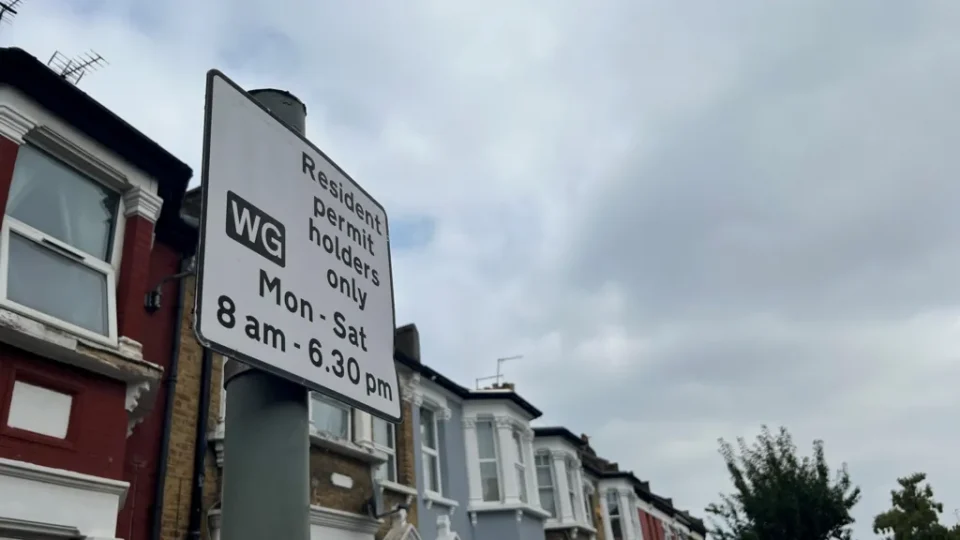Residents from north London are celebrating a significant win after Haringey Council retracted its plans to eliminate daily visitor parking permits.
The proposal, which surfaced last summer, faced backlash from locals due to the projected tripling of visitor parking costs in certain areas of the borough.
The council’s reversal came in response to overwhelming objections, with 95.6% of those who participated in the official public consultation expressing their disapproval.
In reaction to the decision, campaigner Dr. Caitlin Clunie-O’Connor shared her excitement with BBC Radio London, stating: “We are thrilled. It was incredibly encouraging to see how the community rallied together.”
The initial plan would have increased the price of visitor parking from £5 per day to between approximately £13 and £17, depending on the area.
Additionally, hourly permits were proposed in neighborhoods like Harringay Ladder and Tottenham, where parking limitations extend until 6:30 PM, as well as in Wood Green, where restrictions run until 10:00 PM daily.
The potential for a steep rise in visitor parking fees led to considerable frustration among local residents. Many turned to community forums and social media to encourage participation in the consultation process.
Over 5,000 signatures were collected on an online petition opposing the measures.
Dr. Clunie-O’Connor, a Harringay Ladder resident, expressed her satisfaction with the outcome but noted her frustration that Haringey Council did not foresee the potential negative effects of its proposals on the community earlier.
“If the council’s plan hadn’t been recognized by a few vigilant residents, it could have been enacted and adversely affected some of the most vulnerable community members, such as those needing care visits,” she remarked.
“It was also an issue of fairness that should have been acknowledged by the council.”
In correspondence with residents, Labour councillor Seema Chandwani, who oversees inequality initiatives and resident services, mentioned that it was “obvious that the majority felt the elimination of daily visitor permits would create an unjust burden for areas facing longer parking regulation hours.”
She noted that there were also concerns regarding the potential detrimental effects on support networks for individuals with specific needs, as well as the steep cost increases.
In her statement, she emphasized that the decision to withdraw the proposal illustrates “the power of community involvement.”


